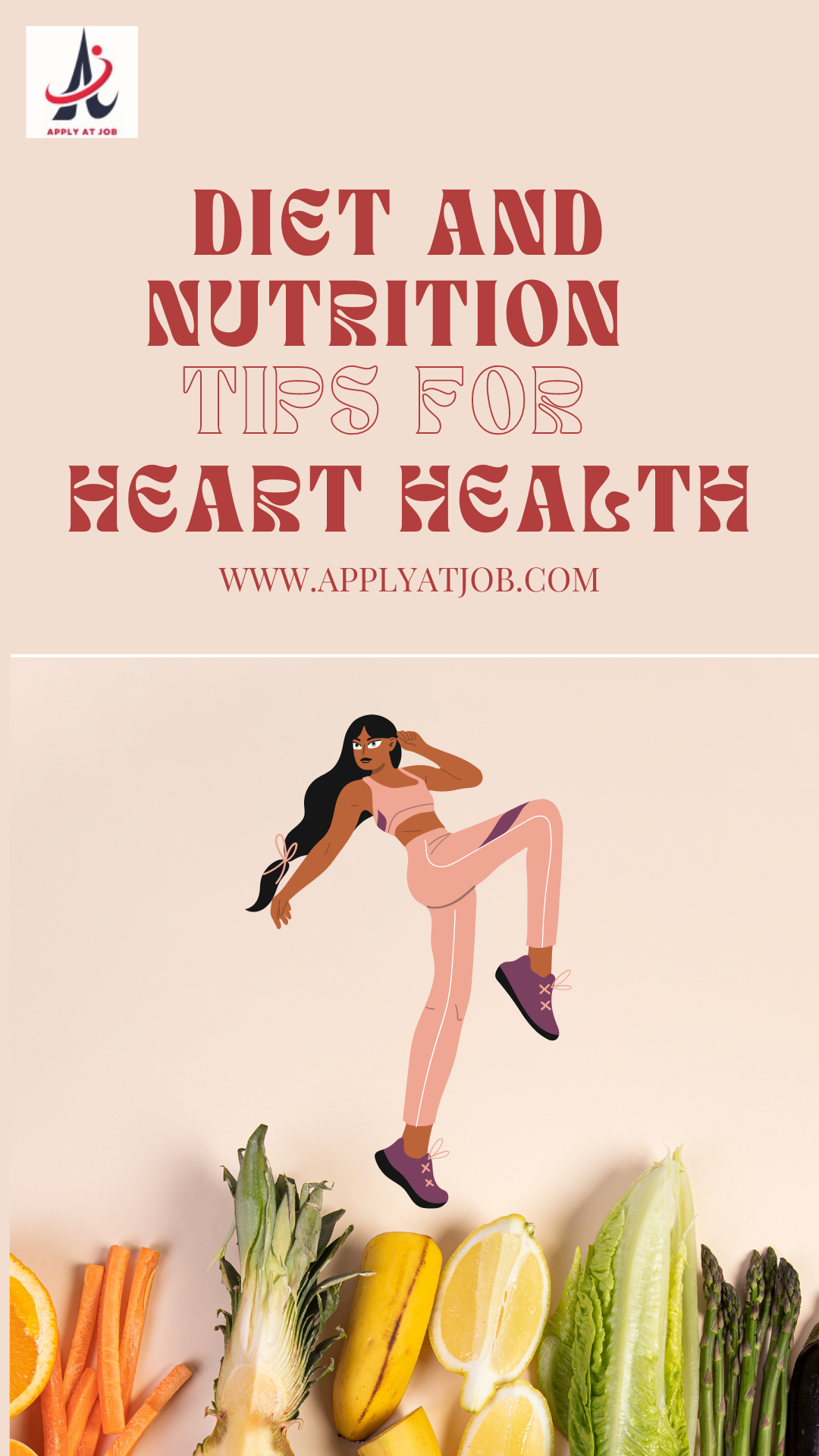
A Comprehensive Guide to Diet and Nutrition Tips for Heart Health
To live a long and healthy life, one must keep their heart healthy. Nutrition and diet have a significant impact on heart health, affecting blood pressure and cholesterol levels alike. You may greatly lower your chance of developing heart disease and improve cardiovascular wellbeing by making educated dietary decisions. This is a thorough guide to help you develop heart-healthy eating practices.
Recognizing Heart Health:
One of the biggest causes of death worldwide is still heart disease. Obesity, elevated blood pressure, and high cholesterol are a few factors that might raise one's risk of cardiovascular disease. Thankfully, controlling these risk factors and promoting general heart health may be achieved by implementing a heart-healthy diet.
Essential Components for Heart Health:
1. Fiber
Fruits, vegetables, whole grains, and legumes are good sources of dietary fiber, which lowers cholesterol and promotes heart health. Because fiber increases fullness, it can also help with weight management.
2. Fatty Acids Omega-3
Flaxseeds, walnuts, and fatty fish (salmon, mackerel, and sardines) are good sources of omega-3 fatty acids, which are also known to have anti-inflammatory and triglyceride-lowering effects.
3. Antioxidants
Vibrant fruits and vegetables are rich in antioxidants, which help fight oxidative stress and inflammation. Nuts, leafy greens, and berries are important sources.
4. Ammonium
Potassium aids in the body's salt equilibrium, which is essential for sustaining normal blood pressure. Avocados, sweet potatoes, and bananas are foods high in potassium.
5. Magnesium
Magnesium controls blood pressure and blood sugar, which promotes heart health. Nuts, seeds, and whole grains are good sources.
6. Good Fats
Nuts, avocados, and olive oil are good sources of unsaturated fats that are good for the heart. They contribute to an increase in HDL and a decrease in LDL, or bad cholesterol.
A Heart-Healthy Diet's Advice
1. Opt for whole grains
Choose whole grains instead of processed ones. Rich in fiber and other nutrients that promote heart health are whole grains like brown rice, quinoa, and whole-wheat bread.
2. Add Lean Proteins
Include plant-based proteins like beans and lentils as well as lean proteins like fish, poultry, and turkey in your diet. Steer clear of processed and red meats, as these may raise cholesterol levels.
3. Highlight Veggies and Fruits
Every meal, try to have half of your plate full with fruits and veggies. They supply vital minerals, vitamins, and antioxidants that promote heart health.
4. Employ Nutritious Cooking Oils
Swap out trans and saturated fats for heart-healthy oils like canola or olive oil. Steer clear of fat and butter when cooking.
5. Reduce Your Sodium Consumption
High blood pressure can be a result of excessive salt intake. Cut back by eschewing manufactured foods and flavoring your cuisine with herbs and spices rather than salt.
6. Cut Back on Added Sugars
Heart disease and obesity are associated with high sugar consumption. Limit sweets, candies, and sugary drinks. When feasible, use natural sweeteners like fruit.
7. Keep an eye on portion sizes
Pay attention to portion proportions to prevent overindulging. To prevent eating late at night, use smaller plates and pay attention to your body's hunger cues.
Ideas for Heart-Healthy Meals:
1. Breakfast
Oatmeal with Nuts and Berries: Antioxidants are found in berries, while oatmeal is high in fiber. Add some almonds on top for good fats.
Fruit with Greek Yogurt: Fruit provides a natural sweetness and fiber, while Greek yogurt is rich in protein.
2. Lunch
Add avocado, a light olive oil dressing, and a variety of bright veggies to this grilled chicken salad.
Quinoa and Black Bean Bowl: For a wholesome and substantial supper, mix quinoa with black beans, corn, bell peppers, and a touch of lime.
3. Supper
Baked Salmon with Asparagus: Asparagus is a wonderful source of vitamins and fiber, while salmon is strong in omega-3 fatty acids.
Plant-Based Stir-Fry: Combine tofu or chicken with an assortment of veggies. Stir-fry with a tiny bit of low-sodium soy sauce and olive oil.
4. Refreshments
. Almond butter with apple slices: a good source of fiber and good fats.
. Carrot sticks with hummus are a delicious, crispy, high-protein, and fiber snack.
Lifestyle Suggestions for Optimal Heart Health:
1. Get Regular Exercise
Make physical activity a part of your daily regimen; try to get in at least 150 minutes of moderate or 75 minutes of intense exercise each week. Walking, swimming, and cycling are good exercises.
2. Continue to Eat a Healthy Weight
A healthy weight may be attained and maintained to lower the risk of heart disease. To help manage weight, combine regular exercise with a well-balanced diet.
3. Give up smoking
One of the main risk factors for heart disease is smoking. If you smoke, get help quitting and stay away from other people's smoke.
4. Control Your Stress
Heart health can be adversely affected by ongoing stress. Engage in stress-relieving activities like yoga, deep breathing, or meditation.
5. Frequent Examinations
Plan on seeing your doctor for routine check-ups to keep an eye on your blood pressure, cholesterol, and heart health. Heart disease can be avoided in large part by managing risk factors and detecting them early.
Conclusion:
Adopting a heart-healthy diet and lifestyle can significantly reduce your risk of cardiovascular disease and enhance your overall well-being. By focusing on nutrient-rich foods, maintaining a balanced diet, and making positive lifestyle choices, you can support your heart health and lead a healthier, more vibrant life. Remember, small changes can make a big difference, so start incorporating these tips into your daily routine today.
You can visit our site: Applyatjob.com
https://applyatjob.com/hiring-employee
https://applyatjob.com/jobs




